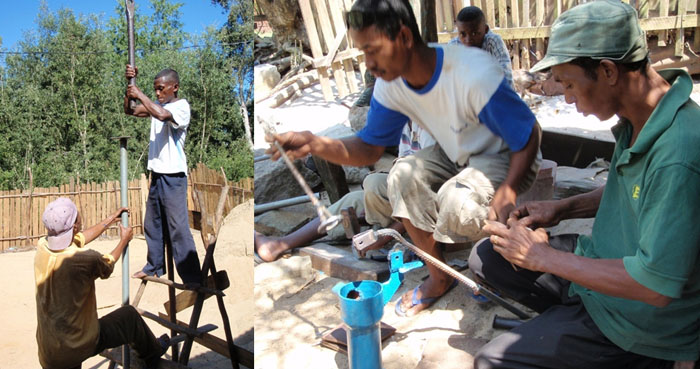{gallery}1213/i3/EWB{/gallery}
Since 2003, Mines has offered a unique program with career and perspective-altering opportunities for students – the Humanitarian Engineering program. The Humanitarian Engineering program teaches students to find a balance between economic feasibility, technical solutions, and sustainable community development. One such educational experience was a presentation by 1998 Mines graduate Mike MacCarthy on “Engineering (Safe) Water for the World: Experiences and Opportunities in International Development for Engineers.”
After receiving his Bachelor’s in Engineering – Civil Specialty from Mines, MacCarthy spent two years in Cameroon with the Peace Corps. Upon his return from work in Central Africa, MacCarthy spent a year working at a water and wastewater consulting firm in Colorado, where he utilized the skills he learned both during his studies at Mines and his work with the Peace Corps. He then pursued a Master’s degree in Engineering for Development from the University of Southampton, for which he did research in South Africa. After more non-profit work in Democratic Republic of Congo and Mali, MacCarthy was ready to continue his education. He is currently working towards his Ph.D. in Civil Engineering and Water Resources at the University of South Florida.
MacCarthy described one small-scale solution, known as self supply, where individual households or communities invest in water treatment, construct supply systems, and harvest rainwater. Some of MacCarthy’s doctoral research includes self supply systems in rural Bolivia. The project involves an EMAS pump, which utilizes a three step drilling process. First, the fluid is pumped into the drill pipe through percussion. Then, it is jetted up the borehole and routed to a settling pit, where it stays until recirculation.
Of the 79 EMAS pumps MacCarthy assessed, 78 were operational and 66 were functioning normally. He found that simply replacing a pump valve could repair most of the pumps’ problems. Ultimately, MacCarthy determined the EMAS pump a sustainable option that had a significant impact on Bolivia’s small-scale water supply problem. He intends to do further research on comparing the EMAS pump to other systems and the feasibility of effectively scaling up the system.
MacCarthy also looked at implementing self supply systems in Madagascar. There, he stressed the importance of using a social marketing framework, rather than a commercial marketing framework. This methodology emphasizes societal gain and sustainability over financial gain. This systems markets behaviors that positively influence safety, public health, communities, and the environment.
MacCarthy also explained to students why projects fail and outlined some of the most commonly believed myths about rural water supply. The most fatal missteps occur when engineers contract what MacCarthy calls “Do-Gooder Sydrome” and believe that anything they can do for a community will be helpful. “Its better to do nothing, than to do something badly,” he says. MacCarthy advises engineering students interested in international development to first get a good background in the field by doing volunteer work and taking relevant LAIS classes.



'Engineers Without Borders and humanitarian engineering' has no comments
Be the first to comment this post!